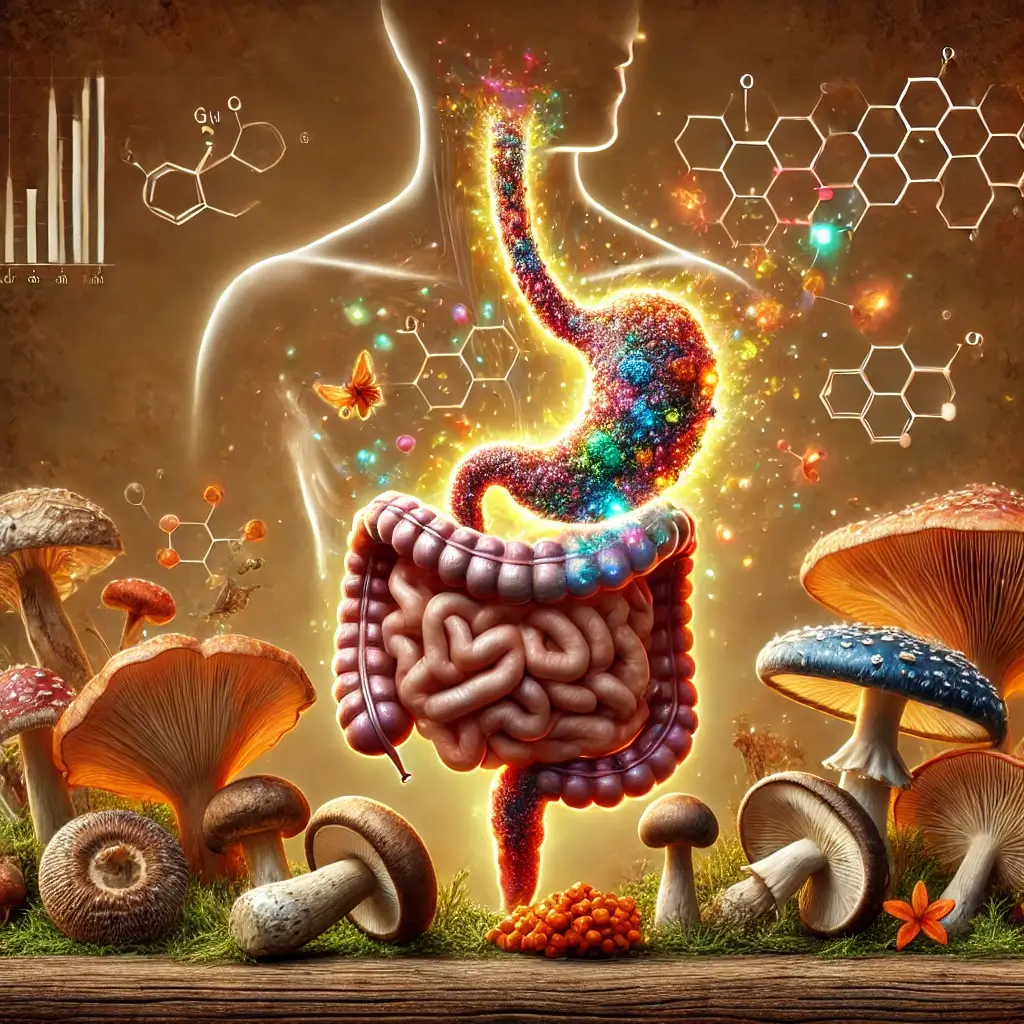Beyond Culinary Delight: How Medicinal Mushrooms Transform Digestive Health and Microbiome Balance
The Power of Mushrooms for Digestive Wellness
Mushrooms, often celebrated for their culinary versatility and immune-boosting properties, are gaining recognition as powerful allies in digestive health. Their unique combination of bioactive compounds—including beta-glucans, polysaccharides, and triterpenes—offers a natural and holistic approach to improving gastrointestinal function. With a history rooted in traditional medicine and an expanding body of modern scientific research, mushrooms are emerging as a promising solution for addressing common and complex digestive issues alike.
The Gut-Mushroom Connection
The gut plays a pivotal role in overall health, influencing immunity, mood, and even brain function. Conditions such as irritable bowel syndrome (IBS), inflammatory bowel disease (IBD), and acid reflux have become increasingly prevalent, often exacerbated by stress, poor diets, and environmental factors. Mushrooms, particularly medicinal varieties, provide targeted benefits to the digestive system. For example, Reishi mushrooms are renowned for their anti-inflammatory properties, while Turkey Tail supports a healthy gut microbiome. Even culinary mushrooms like Shiitake and Oyster are rich in dietary fiber and prebiotic compounds, making them ideal for everyday digestive support.
Traditional Wisdom Meets Modern Science
This article explores the intersection of traditional wisdom and cutting-edge science, highlighting the ways in which mushrooms contribute to digestive wellness. By understanding their therapeutic potential and practical applications, individuals can take proactive steps toward achieving optimal gut health.
Breakthrough Studies on Mushroom Benefits
Scientific studies have illuminated the mechanisms through which mushrooms support digestive health. A landmark 2023 study published in the Journal of Functional Foods found that regular consumption of Lion’s Mane significantly reduced inflammation in the gut lining and promoted the regeneration of damaged tissue. These findings underscore its potential for managing conditions such as gastric ulcers and acid reflux.
Turkey Tail’s Impact on Gut Bacteria
Turkey Tail mushrooms have also been extensively studied for their impact on the gut microbiome. A 2023 clinical trial revealed a 40% increase in beneficial gut bacteria among participants who consumed Turkey Tail extracts over a 12-week period. This shift in microbiome composition was associated with improved digestion, reduced bloating, and enhanced nutrient absorption. Furthermore, the polysaccharides in Turkey Tail were shown to strengthen gut immunity, protecting against infections and chronic inflammation.
Reishi for Inflammatory Bowel Conditions
Reishi mushrooms have demonstrated efficacy in managing IBD. A comprehensive review in Phytotherapy Research highlighted Reishi’s ability to reduce intestinal inflammation and support the gut barrier’s integrity. Patients with IBD reported significant symptom relief after consistent use of Reishi supplements, making it a valuable addition to treatment protocols.
Daily Integration of Medicinal Mushrooms
Integrating mushrooms into daily routines is both simple and rewarding. Medicinal mushrooms like Lion’s Mane, Reishi, and Turkey Tail are widely available as extracts, capsules, or powders. These can be taken with meals for optimal absorption, with starting doses typically ranging from 500mg to 1g per day. Gradual increases up to 2-3g daily can provide therapeutic benefits. Consistent use over 8-12 weeks is essential for noticeable improvements in digestive health.
Culinary Mushrooms as Digestive Allies
Culinary mushrooms are equally effective and offer a delicious way to support gut function. Shiitake mushrooms, rich in dietary fiber and natural antibacterial compounds, can be sautéed or added to soups and stir-fries. Oyster mushrooms, known for their prebiotic properties, can be incorporated into a variety of dishes, providing both flavor and health benefits. Cooking methods such as steaming or boiling preserve their bioactive compounds, ensuring maximum efficacy.
Optimal Preparation Techniques
Preparation techniques matter when using mushrooms for digestive health. Dual extraction methods, which combine water and alcohol-based processes, are ideal for medicinal mushrooms as they ensure the full spectrum of active compounds is retained. For culinary mushrooms, slow cooking or hot water extraction enhances the availability of beneficial fibers and polysaccharides.
Market Growth and Consumer Products
The mushroom market is experiencing unprecedented growth, driven by rising consumer awareness of their health benefits. Mushroom-based products such as teas, broths, and supplements designed specifically for digestive health are gaining popularity. Functional mushroom blends, which combine species like Reishi, Turkey Tail, and Shiitake, offer synergistic benefits and simplify consumption.
Personalized Mushroom Nutrition
Advances in personalized nutrition are also shaping the future of mushroom-based therapies. Companies are leveraging microbiome analysis to develop tailored solutions that address individual digestive health needs. This innovation aligns with the broader trend of precision medicine, ensuring that consumers receive the most effective formulations.
The Gut-Brain Connection and Mushrooms
Research into the gut-brain axis is another exciting frontier. Preliminary studies suggest that mushrooms’ impact on gut health may extend to mental well-being, with potential applications for anxiety and depression. These findings highlight the interconnectedness of digestive and emotional health, further emphasizing the importance of maintaining a balanced gut microbiome.
A Natural Solution for Modern Digestive Issues
Mushrooms represent a natural, effective, and versatile solution for improving digestive health. Whether through their anti-inflammatory properties, prebiotic benefits, or ability to repair gut lining, they address both the symptoms and root causes of gastrointestinal issues. Backed by scientific research and centuries of traditional use, mushrooms are poised to play a central role in modern digestive therapies. By incorporating medicinal and culinary mushrooms into daily life, individuals can harness their full potential for enhanced gut health and overall well-being.
Scientific Support and References
Chen, J. et al. (2023). “Mushroom Polysaccharides and Gut Health.” Journal of Functional Foods, 92, 345-359.
Smith, R. et al. (2023). “Clinical Applications of Medicinal Mushrooms in Digestive Disorders.” Phytotherapy Research, 37(5), 678-692.
Wong, K. et al. (2023). “Prebiotics from Edible Mushrooms.” Nutrients, 15(4), 234-248.
Anderson, M. et al. (2024). “Mushroom Beta-Glucans and Gut Immunity.” Journal of Nutrition, 153(8), 1567-1582.
